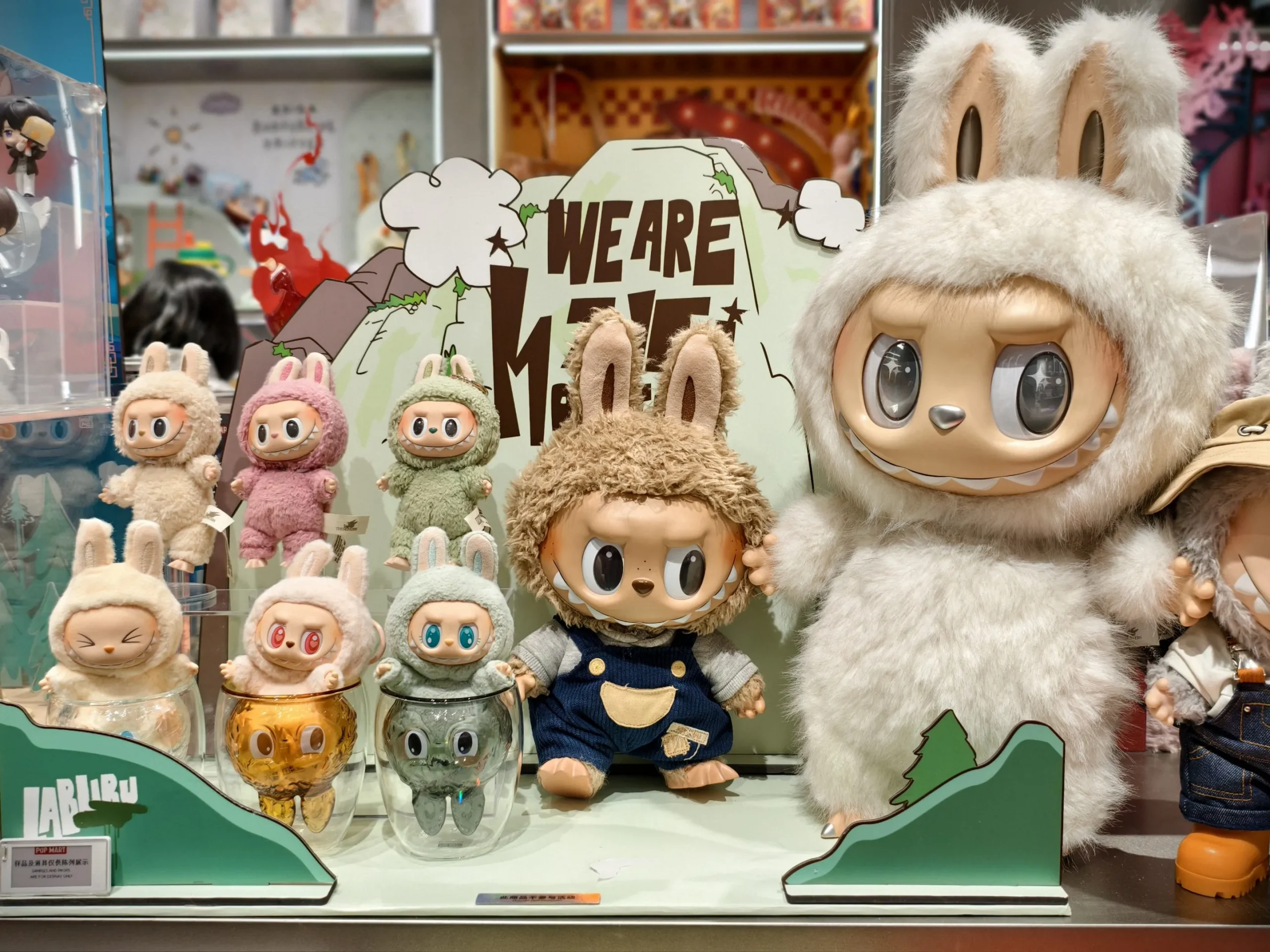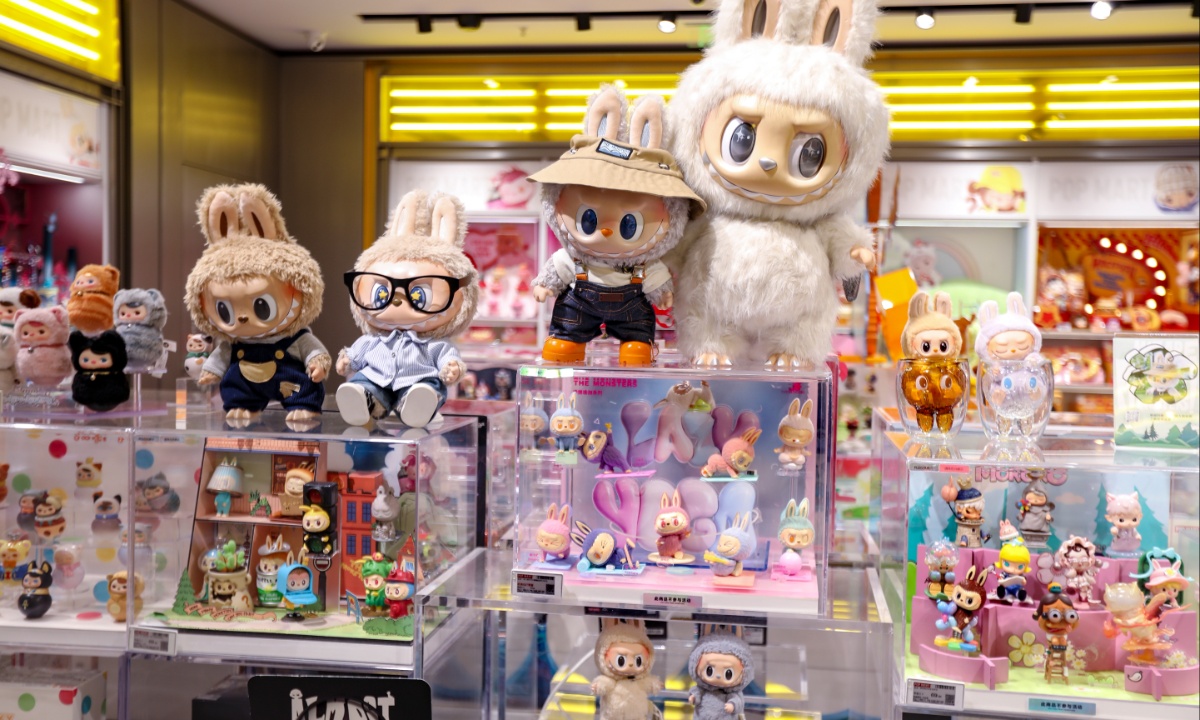Labubu, an elf-like creature created by Hong Kong artist Kasing Lung and produced by Chinese toy giant Pop Mart, has become a global sensation. With its distinctive look—pointy ears, big eyes, and a nine-tooth grin—the doll has attracted a massive following, including celebrities like Rihanna, Dua Lipa, Kim Kardashian, and Blackpink’s Lisa. From Shanghai to London, fans line up for hours, and even scuffles have broken out in the rush to own one.
Labubu originates from “The Monsters” series, with the character described as kind-hearted but often causing chaos unintentionally. The design, a mix of creepy and cute, has sparked divided opinions online. The universe includes other characters like Zimomo, Tycoco, and Mokoko, but Labubu’s distinctive charm and recognizability have made it the standout figure and the face of the franchise.
From Humble Beginnings To Global Fame, Pop Mart And Labubu Conquer Collectible Culture
Pop Mart began as a low-cost variety store in 2010 in Beijing. After licensing Labubu in 2019, the company leveraged the success of blind boxes—a concept where the buyer doesn’t know which toy they’re getting until after purchase. The blind-box model, coupled with Labubu’s popularity, catapulted Pop Mart into global retail prominence. Now listed on the Hong Kong Stock Exchange, Pop Mart’s shares have skyrocketed, and the company operates over 2,000 vending machines worldwide.

Labubu’s global breakout began post-pandemic, as people sought comfort and escape through quirky and nostalgic collectibles. Its initial rise in China soon spread across Southeast Asia and reached Western markets. Emotional relatability and social media buzz helped expand its reach. Fans like Fiona in Canada cite both cuteness and the hype factor as major reasons for their obsession.
Global celebrities amplified Labubu’s appeal. When Lisa of Blackpink showcased Labubu dolls on social media in early 2024, the doll’s popularity soared. This was followed by endorsements from Rihanna, Kim Kardashian, and even David Beckham, turning Labubu into a fashionable status symbol. Sightings of Labubu dolls on handbags and shelves became common, solidifying its place in pop culture.
Labubu’s Quirky Charm Fuels Global Obsession And Showcases Rising Chinese Cultural Soft Power
Though hard to explain, Labubu’s appeal seems to be a mix of design eccentricity, affordability, collectibility, and social media virality. Chinese state media has embraced the doll as a symbol of China’s soft power and creativity. Analysts note that Labubu’s success, like that of BYD and other Chinese companies, transcends political narratives—its quality and appeal speak for themselves.
Part of the excitement comes from the blind box experience. Fans often gather in stores to shake boxes and guess which figure they’ll get, aiming for rare “chaser” editions. For collectors like Desmond Tan in Singapore, finding a chaser in a few attempts brings immense satisfaction. The element of randomness, combined with community interaction, fuels the obsession.
Labubu is more than a trend—it’s a cultural export that has redefined what Chinese soft power can look like. With nearly 40% of Pop Mart’s revenue now coming from international markets and demand still soaring, the brand shows no signs of slowing down. If anything, Labubu’s story may signal a broader shift in global consumer culture, where playful, offbeat creativity leads the way.


